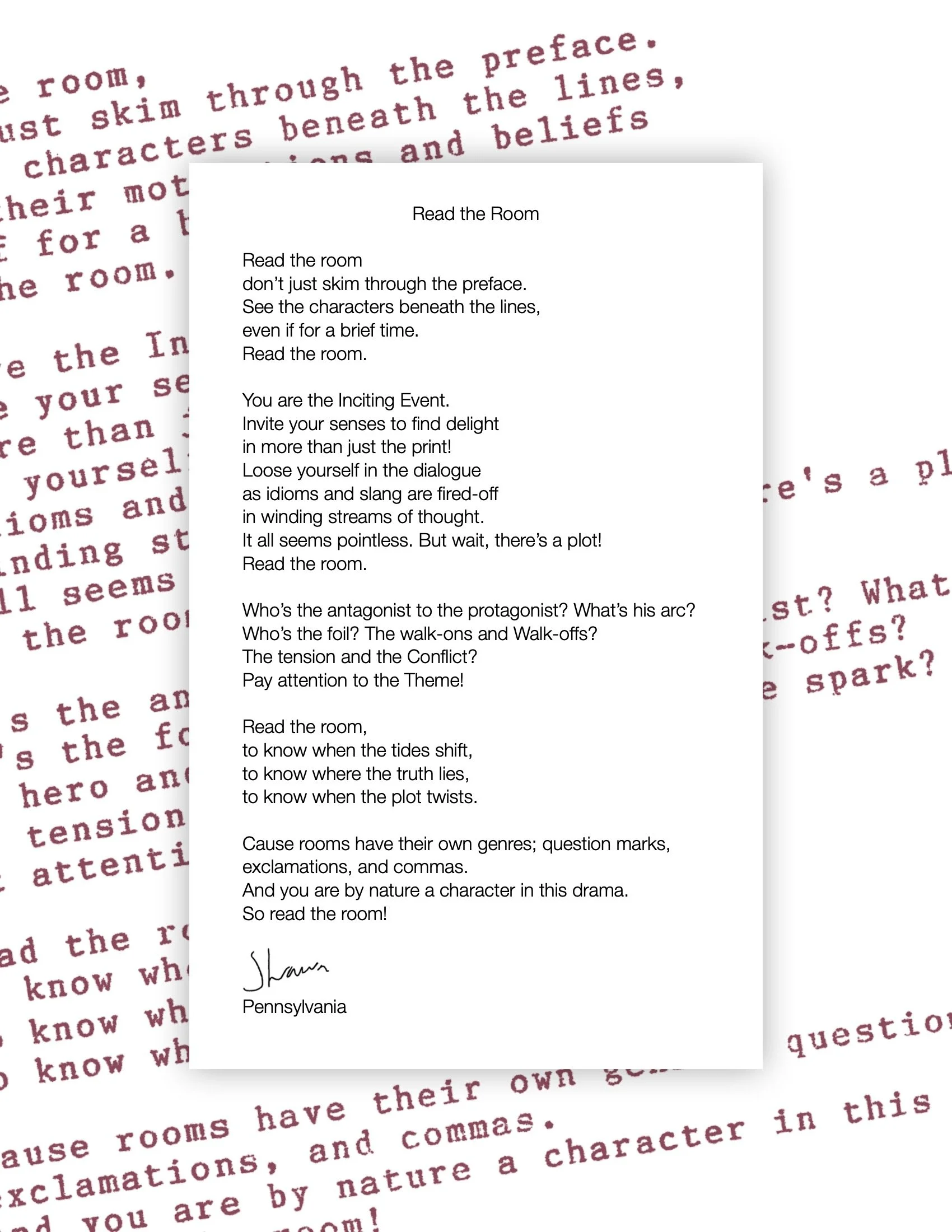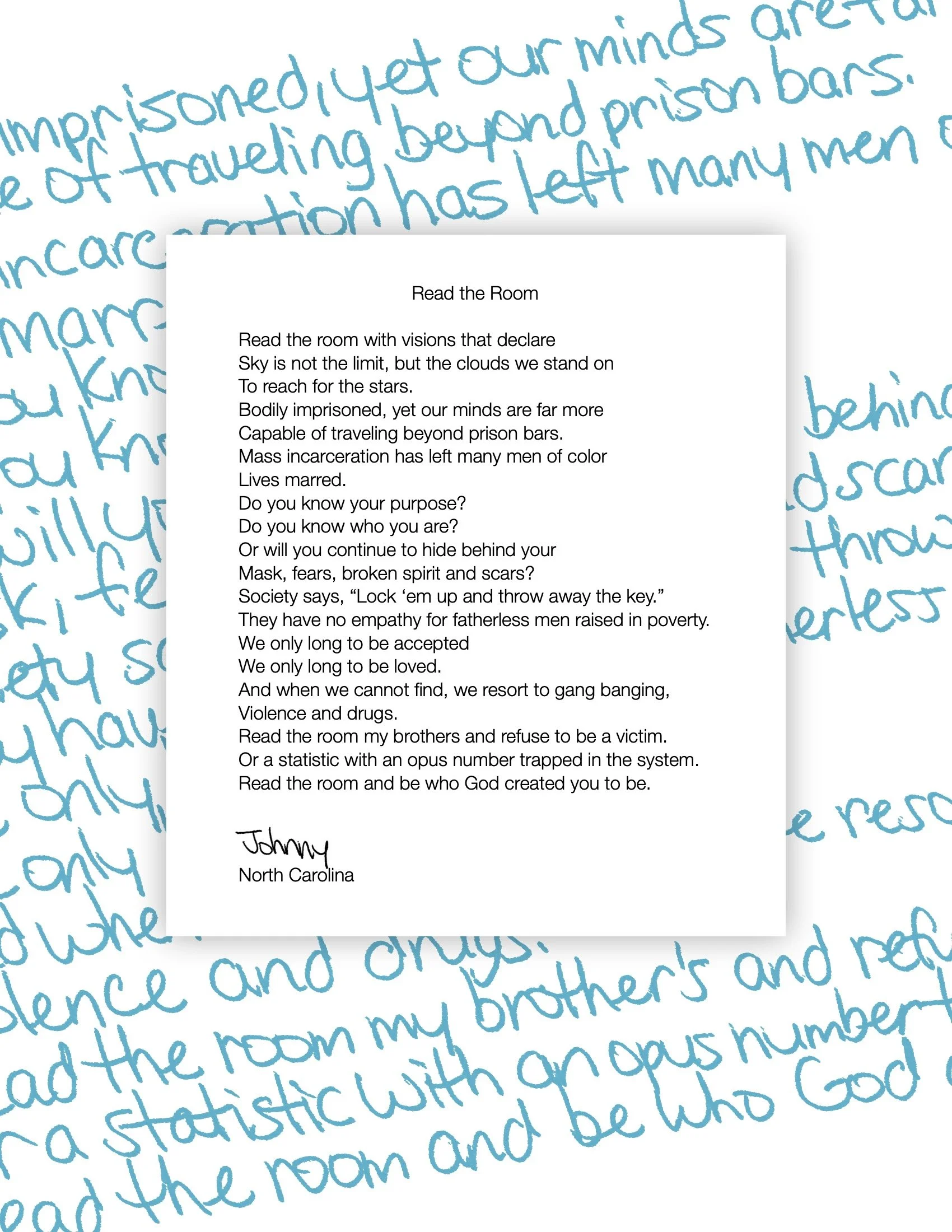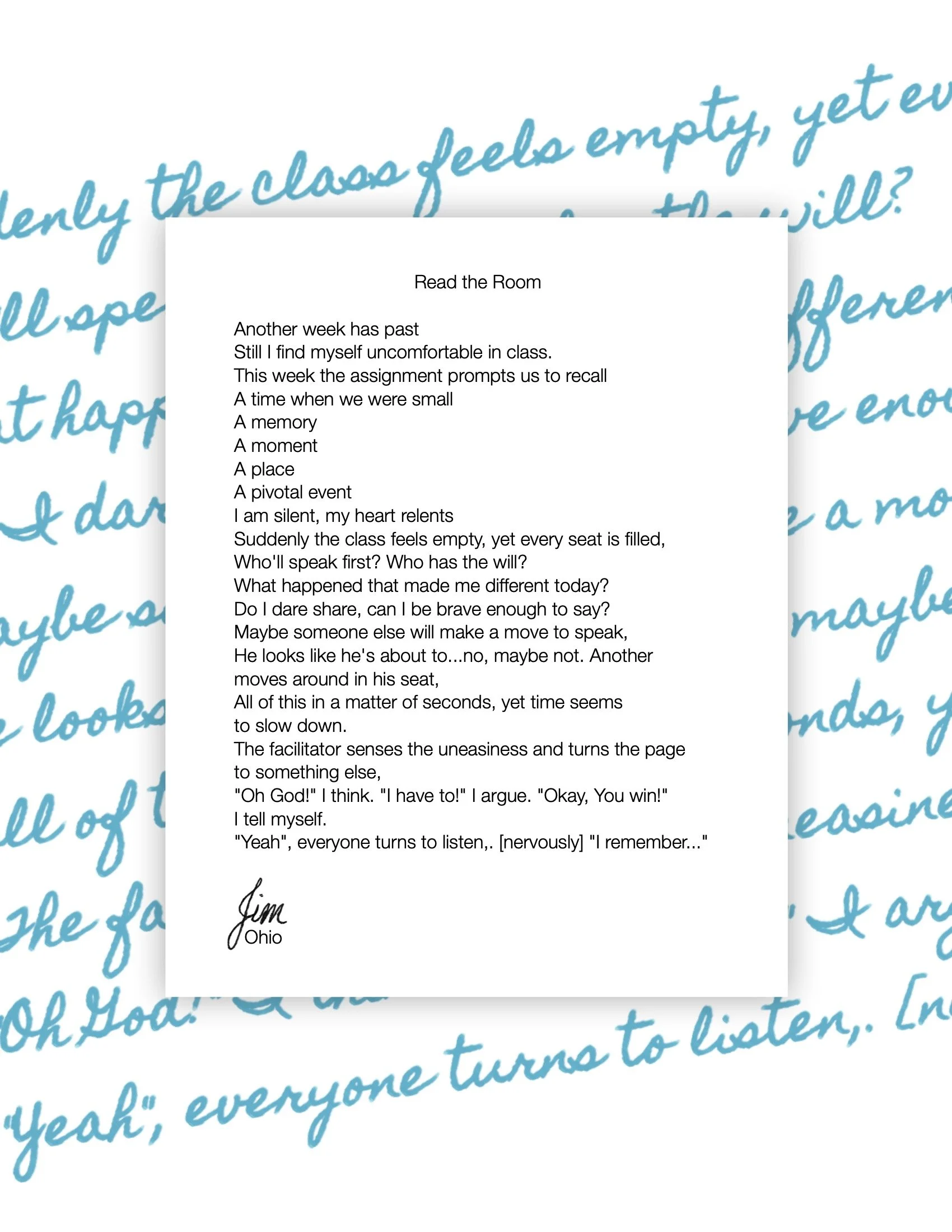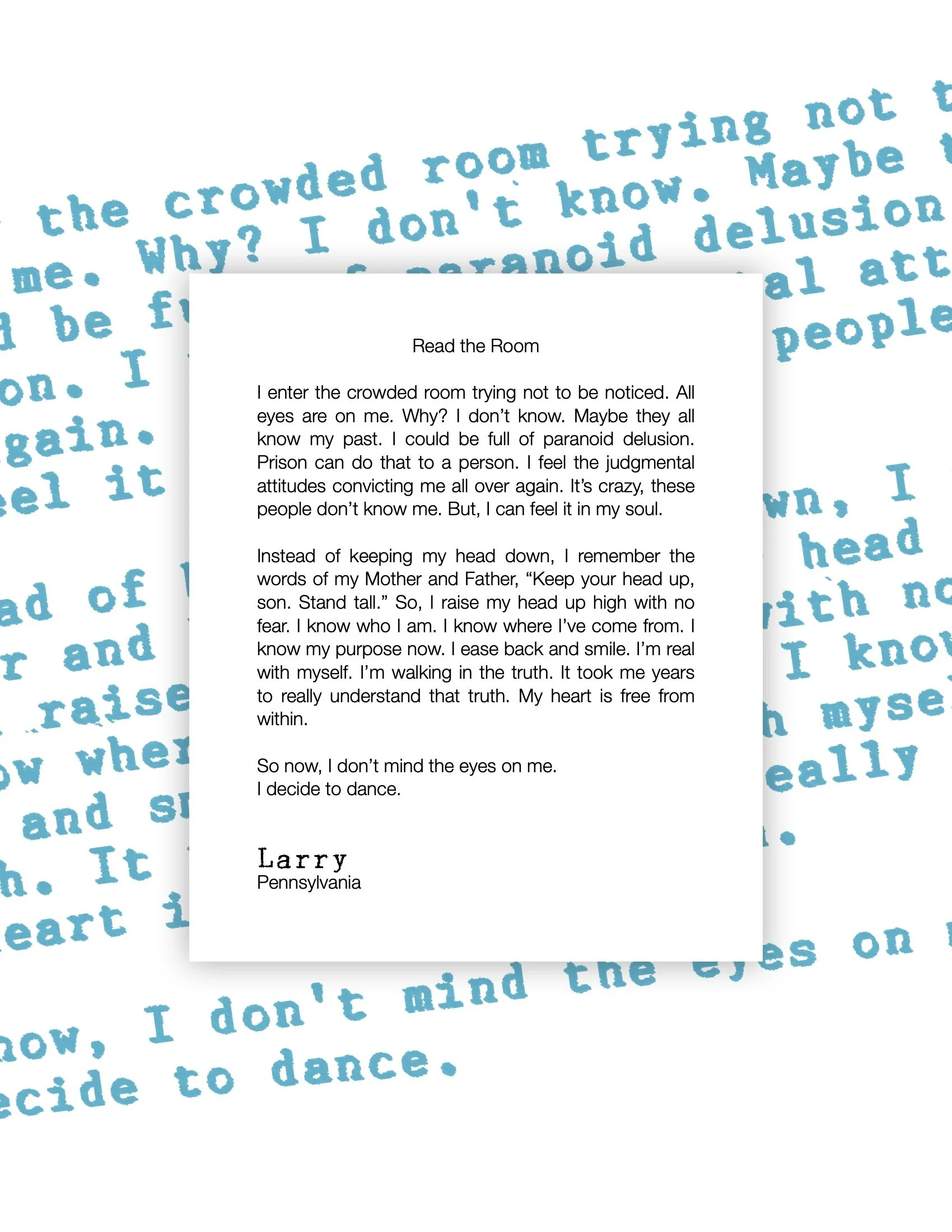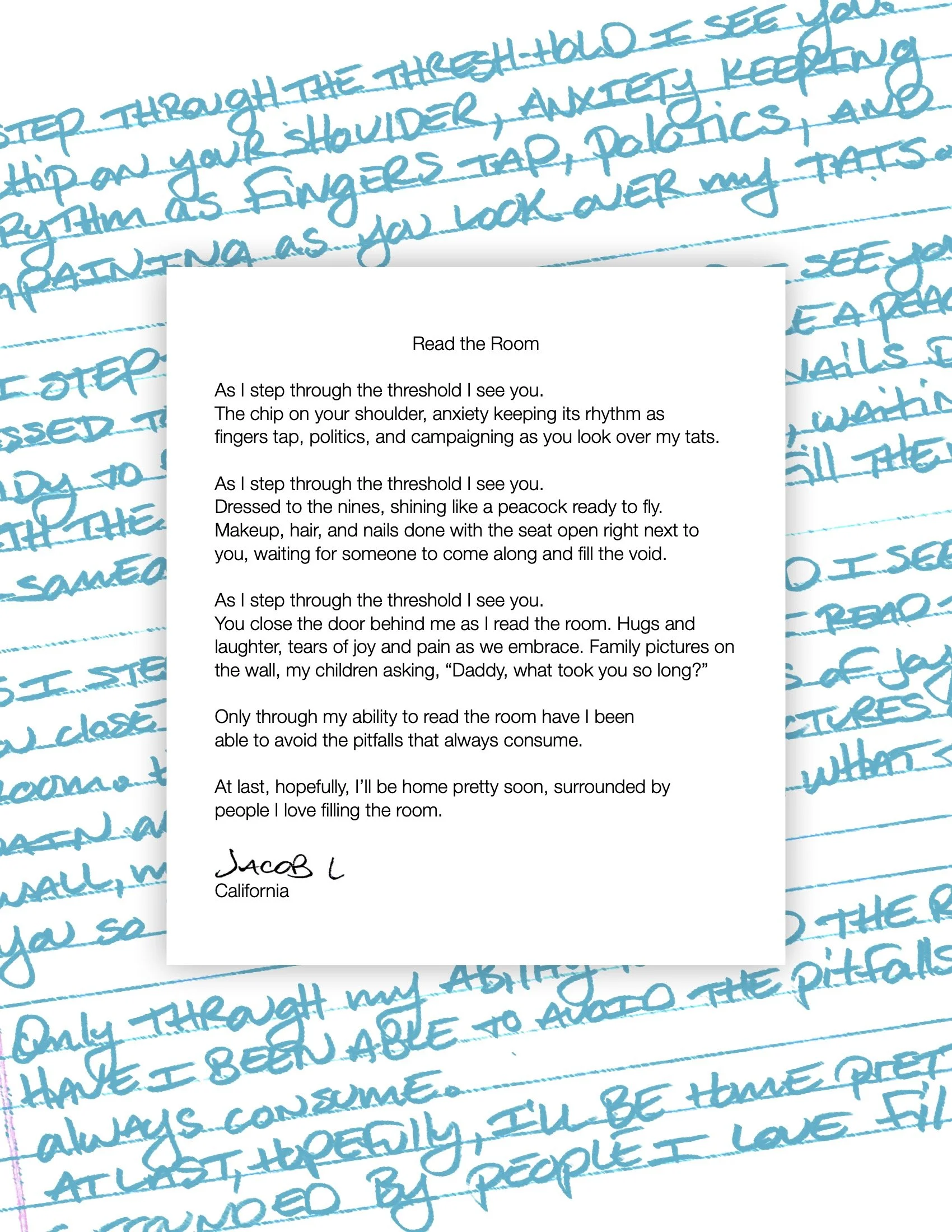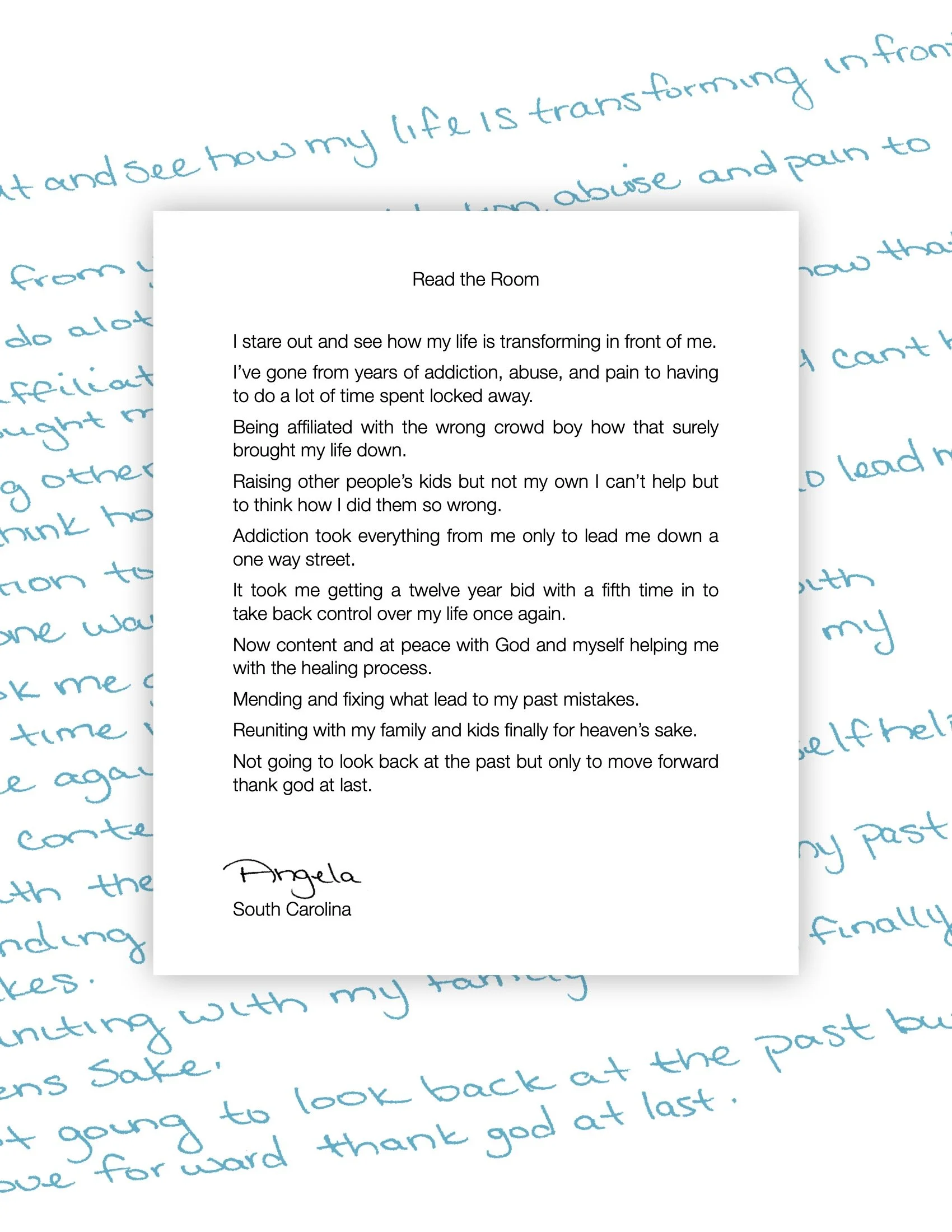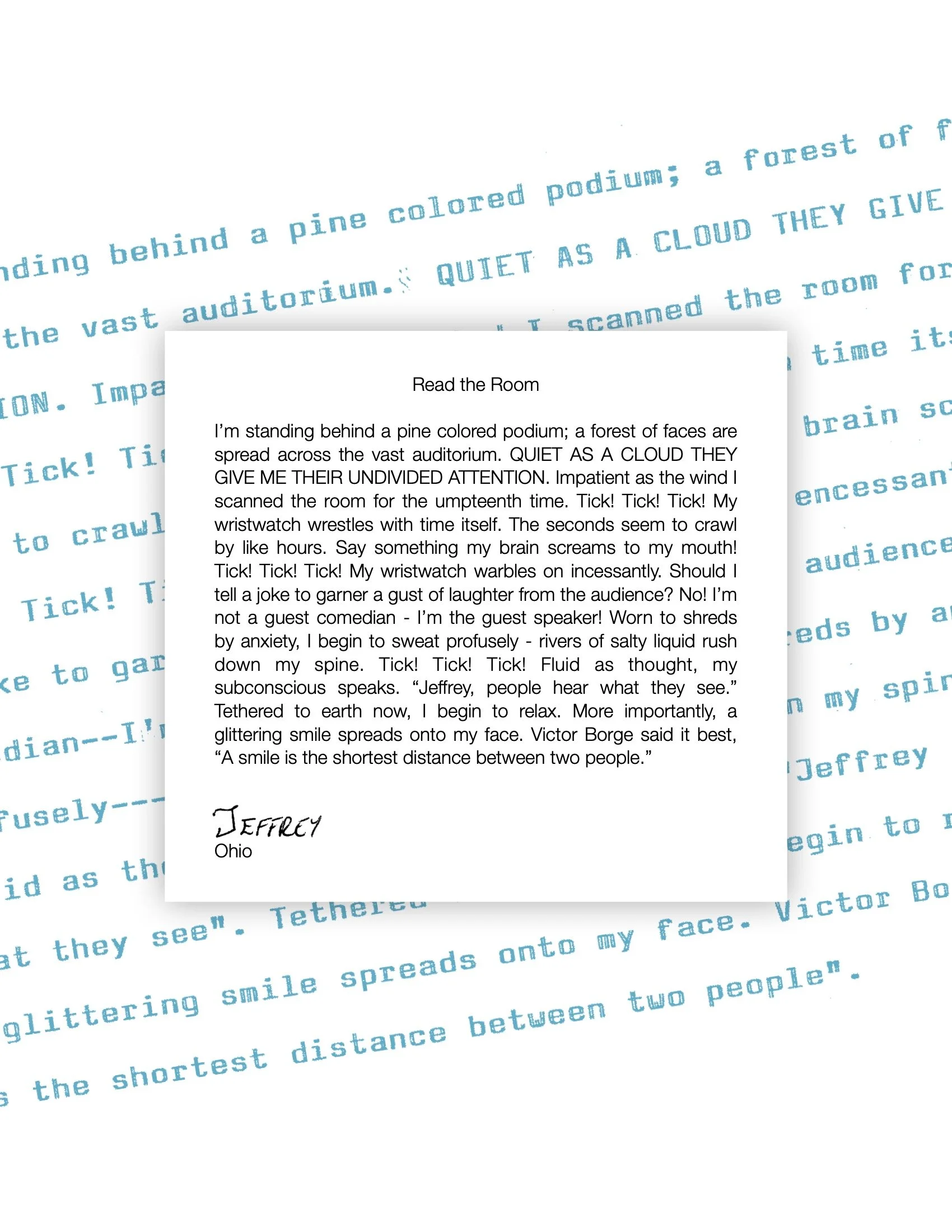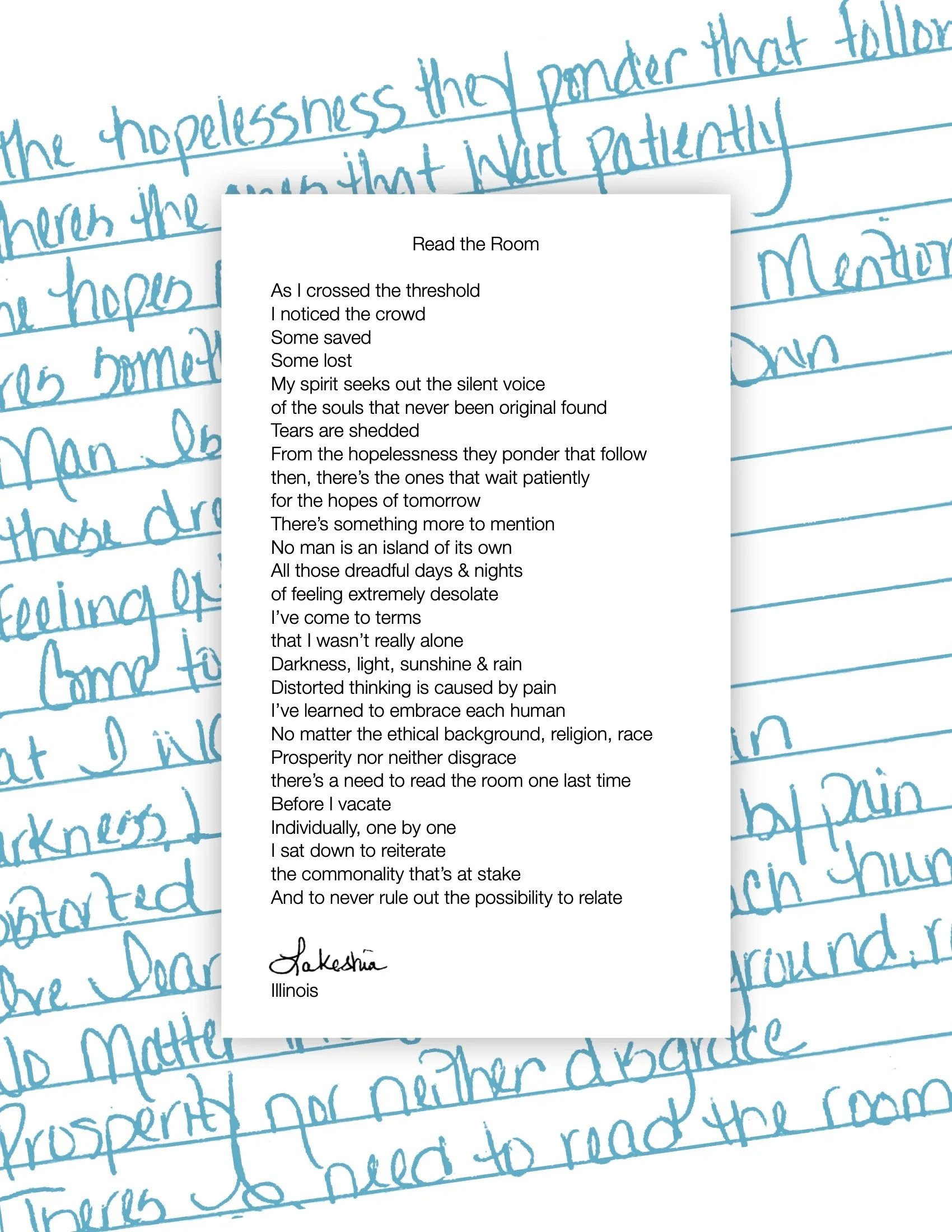
“Read the Room”
WRITING PROMPT:
In the 2022 November/December issue of The Loop, we explored different ways the character strength of Social Intelligence is often used, in prison and/or out in society. As a way to creatively reflect on this even further, we invited readers to write a short poem, monologue or essay that was inspired by the phrase “Read the Room.” The pieces below include a variety of unique, brave, and honest responses from writers in prisons throughout the US.

-
![]()
Shawn (PA)
Read Shawn's piece featured on page 11 in The Loop - 2023 - Issue 1!
-
![]()
Johnny (NC)
This is a beautiful poem, with fine attention to rhythm and rhyme, that also addresses race in a moving and powerful way. Note especially the lines "They have no empathy for fatherless men raised in poverty / We only long to be accepted / We only long to be loved."
Why do you think it's often so hard for people to acknowledge their need for love? How do you think the world might be different if we could all admit this is true?
-
![]()
Jim (OH)
"Another week has passed./ still I find myself uncomfortable in class." This is a terrific poem about finding the courage and strength to speak about an important memory in a class, to speak into the nervous silence all around you.
Have you ever felt this longing to speak up, but also felt constrained by fear? How did you feel when you didn't actually speak--or how did you feel when you DID?
-
![]()
Larry (PA)
This is a very self-aware prose poem about the feeling of having "all eyes" on you, and instead of giving in to fear or paranoia in the face of that, holding your head high "with no fear" - even smiling, and dancing!
Why do you think we often hate having someone look at us? Have you also felt the need to hang your head, or even stare back in anger, in the face of this? What might happen when you simply hold your head up and smile instead?
-
![]()
Jacob (CA)
The speaker in this poem imagines himself in a series of rooms - first (maybe) a law enforcement or parole officer's office, then maybe a prison visiting room, then in a richly imagined and hoped-for room in his home when he returns. It builds nicely from fear and mistrust, to curious observation, to joy.
Try imagining yourself in several different rooms--both ones you know and ones you like to imagine. What do you see there? How does each room make you feel?
-
![]()
Angela (SC)
This is a touching piece about recognizing past mistakes and being ready to look ahead, and do better. The “room” the speaker is seeing seems more like a series of images of her past and hoped-for future, and these are powerful. Especially moving is her desire to reunite with her family and kids.
If you look at various “rooms” from your life, past and present, what is the image of the room you most want to enter now? What are you building toward?
-
![]()
Jeffrey (OH)
Through a series of powerful similes and strong descriptive language, this brief piece describes the overwhelming anxiety many public speakers experience when they step up to a podium before a crowd. Time ticks by, and we wonder what will happen, when suddenly the speaker hears a voice saying “people hear what they see.” This reminder calms him down, and when a smile spreads across his face, he knows all will be well.
Think of a time when a smile said it all for you. What is it about a smile that can put us immediately at ease?
-
![]()
LaKeshia (IL)
This piece addresses “read the room” in an interesting way. Through twists and turns, there’s a nice, calm voice at the center of the poem, one that seems to be trying to provide comfort and solace to all who are struggling, to recognize “the room” as a place where she can offer help. Great closing line: “to never rule out the possibility to relate.”
Besides "reading the room," what strengths can you bring to the room? How can you offer support to others who might be struggling?


